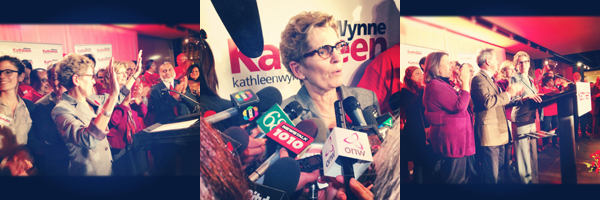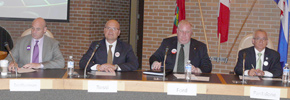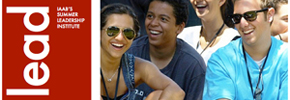Sima Sahar Zerehi – I like strong woman. The ones who look at you straight in the eye, the ones that can make you quiver in your boots with the simple raising of an eyebrow. These woman who wear their skin like well-worn armor, who have their experiences etched in the creases of their hands and laugh lines around their eyes, these are the women who inspire me.
I like their unapologetic nature, their fierce determination and their unshakable beliefs in the legitimacy of their cause. I know that these woman are sharp, they can be demanding, unrelenting, uncompromising. After all, they are from a generation that had to fight tooth and nail to achieve their successes. They persevered in arts, politics, academia, and media and carved the paths that younger women like me take for granted.
I don’t always agree with the decisions these women have made, at times I reject their views, resent their iron-will and begrudge their sense of authority, but whenever I have the chance to speak with one, I have to suppress the urge to ask, in between the conversation at hand, how did you do it? What if anything did you have to compromise? What can I learn from you that I don’t already know?
This week, I had the opportunity to have a conversation with Kathleen Wynne one of the growing numbers of candidates vying for the position of Ontario Liberal Leader. Kathleen Wynne has been a member of the Legislative Assembly of Ontario, representing the riding of Don Valley West since 2003. Most recently she was Minister of Municipal Affairs and Housing and Aboriginal Affairs. Wynne has also served as parliamentary assistant to Minister of Training, Colleges and Universities, parliamentary assistant to Minister of Education, Ontario Minister of Education and the Ontario Minister of Transportation.
In the 2007 election she was challenged by PC leader John Tory. Although the race was predicted to be close, Wynne was re-elected with 50.4% of the popular vote, defeating Tory who received 39.7% of the vote.
SZ: For years you’ve worked hard to build ties within the ethnic communities in Toronto and throughout Ontario. You’ve consistently made yourself available to ethnic media and have been a fixture at community events. If you are selected as the Ontario Liberal leader, what can ethnic communities expect from your leadership? How do you plan to make the party more reflective of these diverse communities?
KW: What the ethnic media can expect from me is continued accessibility. I’m very interested, if I have the privilege to lead the party, to continue to build the party and the governments’ relationship with the ethnic press. Because I think the ethnic press is so important in connecting the ethnic communities to each other and to the broader Ontario culture.
In terms of diversity of the party, I think that we need to continue to work to find terrific candidates like Reza Moridi, I think we need to find staff from a range of backgrounds because that’s how we make good decisions.
SZ: It seems that every recognizable member of the provincial Liberal party is running for the position of leader. Does this speak to the desirability of this position or a power vacuum within the party?
KW: I think it speaks to the desirability of the position. I think that the fact that we have six, maybe seven candidates coming this week, suggests that we’re very proud of the work we have done, feel very much part of a team that has been successful and will continue to be. There’s a real desire to be part of the debate on what the party is going to look like going forward and a vision for Ontario. So, I think it’s very positive.
SZ: You have already been dubbed the centrist candidate – promising to repair the Liberals’ relationship with teachers while managing a $14.4-billion deficit – how do you intent to handle these challenges? Is it possible to rebuild the Liberals’ ties with the teachers’ union after the acrimonious natures of the current dispute?
KW: Yes, in terms of rebuilding the relationship with teachers and labour and the relationship to balancing the budget. I see that rebuilding the relationship with teachers is about an expression of respect, I see that it’s about process. It’s not, in my mind, about acquiescing on increasing salaries. That’s not the outreach, because, we can’t afford to do that. We have to stick to our fiscal plan; that means dealing with public sector compensation. But I do think that there’s more that we can do in terms of the relationship, the formal processes of negotiation, and what those should look like going forward, and that would be my conversation with the teachers.
SZ: As you know, there are a number of controversies dogging your party in Ontario including the closure of the gas plants and an ongoing criminal probe into the Ornge air ambulance service, what is your position on how to troubleshoot these issues?
KW: I think each one has a slightly different resolution necessary. On the Ornge issue there’s an ongoing process around that. We had put in place legislation – Bill 50 that would have put more oversight in place for the air ambulance service – one of the reasons I want to get back to the legislature is that I want to reintroduce legislation like that, that is very important to us as a government. From my perspective what is embodied in Bill 50 are the lessons learned from the Ornge incident. On that one I think we need to get back to the legislature and put the bill in place.
On the gas plant, we have provided information to the opposition; we have provided information to the committee. I think that the new Premier is going to need to make sure that there aren’t any outstanding questions and that every bit of information that needs to be provided is provided. The important lesson from the gas plant situation for me is that we need better process, whether it’s windmills or gas plants we need better community process on locating these energy projects, so that the community understands why they are there and we’re not dealing with push back and lost time and money at the end of the process. I would be looking to set up better community work upfront.
SZ: Many people believe that one of the key reasons that ethnic communities in Toronto turned towards Rob Ford during the municipal election, despite his openly anti-immigrant positions on a number of issues, was because the Liberal leaning candidate George Smitherman was openly gay. Do you think your sexual orientation will play a role in your bid for leadership?
KW: That’s a very good question. In every election campaign that I have run there has been some mention of my sexuality, some issue raised, in each case I have been able to overcome that. I believe that Ontarians are willing to decide on one’s merit. I don’t think my sexuality will be a determining factor.
Especially in the Iranian-Canadian community. I spent a lot of time in the Iranian community with people from all parts of the city and province and I am so convinced that most of the people who come here from other countries, come here because they believe in social justice, they believe in human rights. In terms of the new immigrant communities, I believe that they are the staunchest defenders of human rights so I actually have a lot of confidence in their ability to deal with difference.
SZ: As Canadians we often feel that we are much more progressive than our neighbours to the South, but the US election this past month proved to many that we don’t have a monopoly on progressive policies. With Americans selecting a record number of women to senate, ratifying laws to legalize marijuana, and same-sex marriage and electing an openly lesbian woman to senate, what if any lessons can the provincial Liberals draw from the US federal election and Obama’s second win?
KW: I was very encouraged by Obama’s win and all those successes that you named in terms of the number of women, in terms of the openly gay senator, and what I take from that is that we should not be discouraged. Those of us who are progressive should not be discouraged by the rhetoric that says the country is moving towards the conservative side, that the right is winning. We have to stand up and really place our flag in the sand and say this is where we are, and this is what we believe, and this is the value system we need. We have to be strong and not be afraid to take progressive positions; we need to not backtrack from our value system. For me that means investing in strong education and healthcare, and not abandoning our poverty reduction strategy. We keep those issues on the front-burner while we balance the budget. Yes, we have to balance the budget, but for me, as I said in my candidacy speech, the balancing of the budget is a means to an end, and the end is the delivery of services and a strong public institution.
SZ: How do you think the Federal Liberal party’s highly popularized leadership race will affect the provincial party and the provincial leadership race?
I think it invigorates the whole liberal brand, the fact that there’s a leadership race that is happening federally and ours is happening provincially; ours is quicker and I’m pleased that it’s going to be a short timeline because we are in a position where we need to govern. I’m not worried about being overshadowed. I think it’s great that the federal Liberal’s have certainly one very high profile candidate and others are coming in now, but I don’t think it will shadow our race because we have the responsibility of governing. I think in some ways, how we decide on our leadership and how we perform on and after January 25, 26 is even more important to the Liberal brand at this particular moment.





